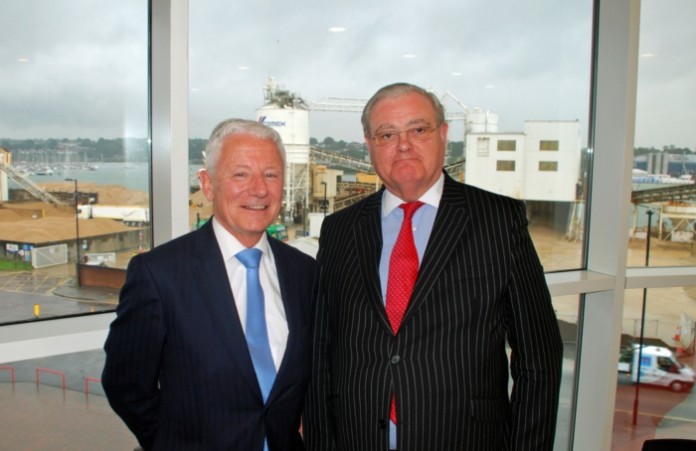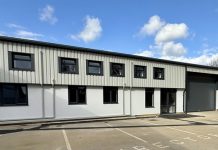
The construction industry is facing its biggest challenges for years and a ‘glut of company insolvencies’ and mergers are likely, says a leading expert.
Professor Ian Reeves CBE, Senior Partner of international corporate development advisers Synaps Partners LLP, believes that the UK construction industry will be radically re-shaped in the foreseeable future and that one or more large UK firms will fall under Chinese ownership.
He was speaking at the construction industry-themed Food for Thought lunch club hosted by accountancy and investment management firm Smith & Williamson at Southampton FC’s St Mary’s Stadium.
Prof Reeves started his career at Fawley Power Station and became the commercial manager for the construction of Spaghetti Junction in his early twenties, prior to founding the High-Point Rendel Group, the first quoted contracting consultancy with offices around the world. He went on to express his concern about the current state of the industry, saying: “In 12 to 15 months we will see a glut of insolvencies as firms can’t pay their bills on time.
“Margins are low, cash flow is a crucial issue going forward and I can envisage more companies in distress, administration and more consolidation such as mergers and takeovers.”
On a brighter note he said as 40% of building work in this country was still national or local government initiated, the pressure Government was putting on companies was having some impact on their making payments in a shorter time – and courts were more receptive to actions over late payments.
His words come as construction data experts Barbour ABI report that the value of construction projects put on hold in the last 12 months has increased by 30%, totalling £12 billion.
In his overview on the construction industry Prof Reeves, visiting professor at Manchester Business School, predicted that Chinese companies would take over at least one large UK firm, to join the Americans, Japanese and Europeans already here.
“We are facing dramatic changes in the construction industry. The UK is becoming the “aircraft carrier” for the rest of the world because of the time zone, language, English law and the talent available.”
His theme was taken up by second guest speaker Madoc Batcup, Managing Partner of Synaps Partners LLP with an investment banking background in the Far East and the City who said there were three main challenges – technical, sectoral and international.
He commented that the industry was on the cusp of change and that with a shortage of materials and skilled labour a new approach to construction was needed.
He predicted that build offsite construction techniques, where buildings are manufactured elsewhere and assembled onsite would become increasingly adopted to meet the technical challenges.
The introduction of BIM (Building Information Modelling) would enhance the ability to pull together the necessary data, reducing costs and risks, improving quality and shortening delivery times as well as improving the financing framework of construction.
He commented that IT would transform the industry, and noted the global impetus towards smart buildings and cities, with companies from outside the industry, even including software companies such as Google, representing a sectoral challenge.
Although firms such as international construction company Laing O’Rourke are at the forefront of change, fabricating in some cases as much as 85% of a building off site, there were serious challenges from overseas firms.
Madoc cited the example of the Broad Group from Changsha in China as illustrating all three of these challenges. Established in 1988 as an air-conditioning company, it had over the last five years or so established a sustainable buildings division, and had completed a 57 storey building in 19 days in February of this year in Changsha, but its ambitions are very much international in scope and scale.
The challenge faced by the UK construction industry is therefore not just cyclical, but a deeper one of disruptive technology being introduced by companies from different sectors and countries.
Southampton-based David Blenkarn, partner in restructuring and recovery services at Smith & Williamson chaired the lunch and said: “The construction sector is facing a number of challenges, including a lack of skilled labour, the introduction of new construction techniques and the effective management of cash flow.”
“The built environment in Southampton is changing, with student accommodation the top growth area, followed by waterside flats. Both could possibly be done by ‘flat pack’ means.”
The Smith & Williamson lunch club was held in the Board Room at St Mary’s and attended by 50 guests, including solicitors, accountants, bankers and property professionals.






















